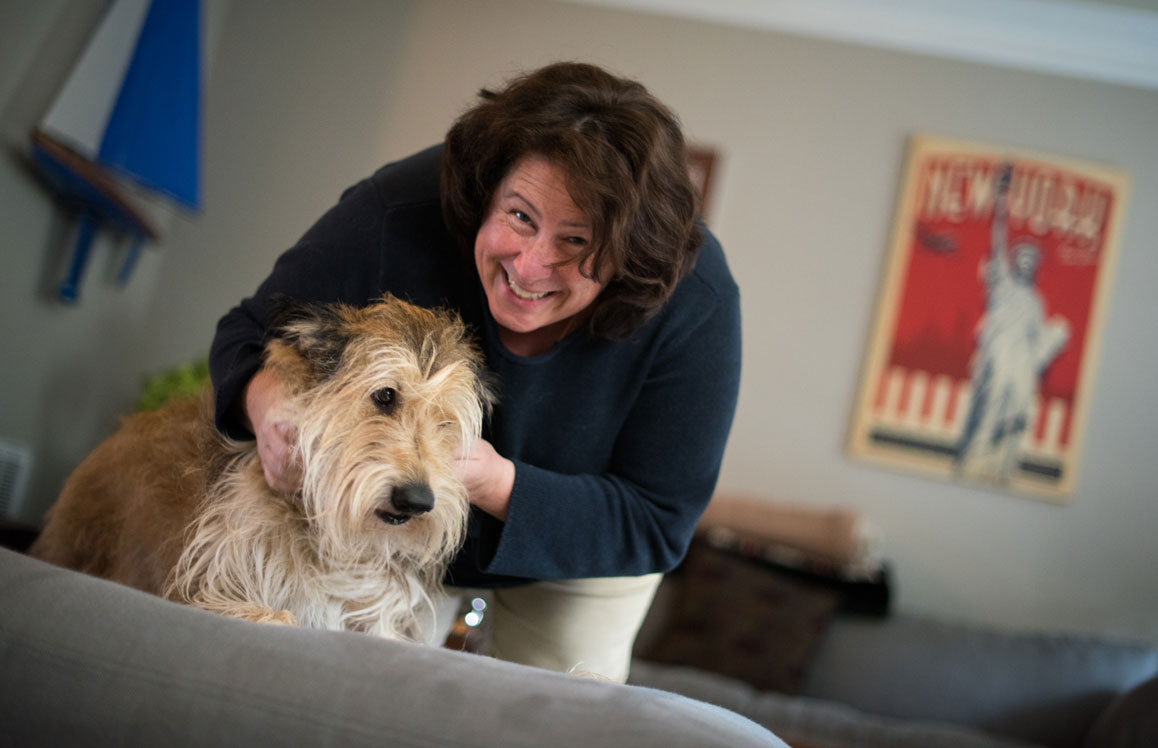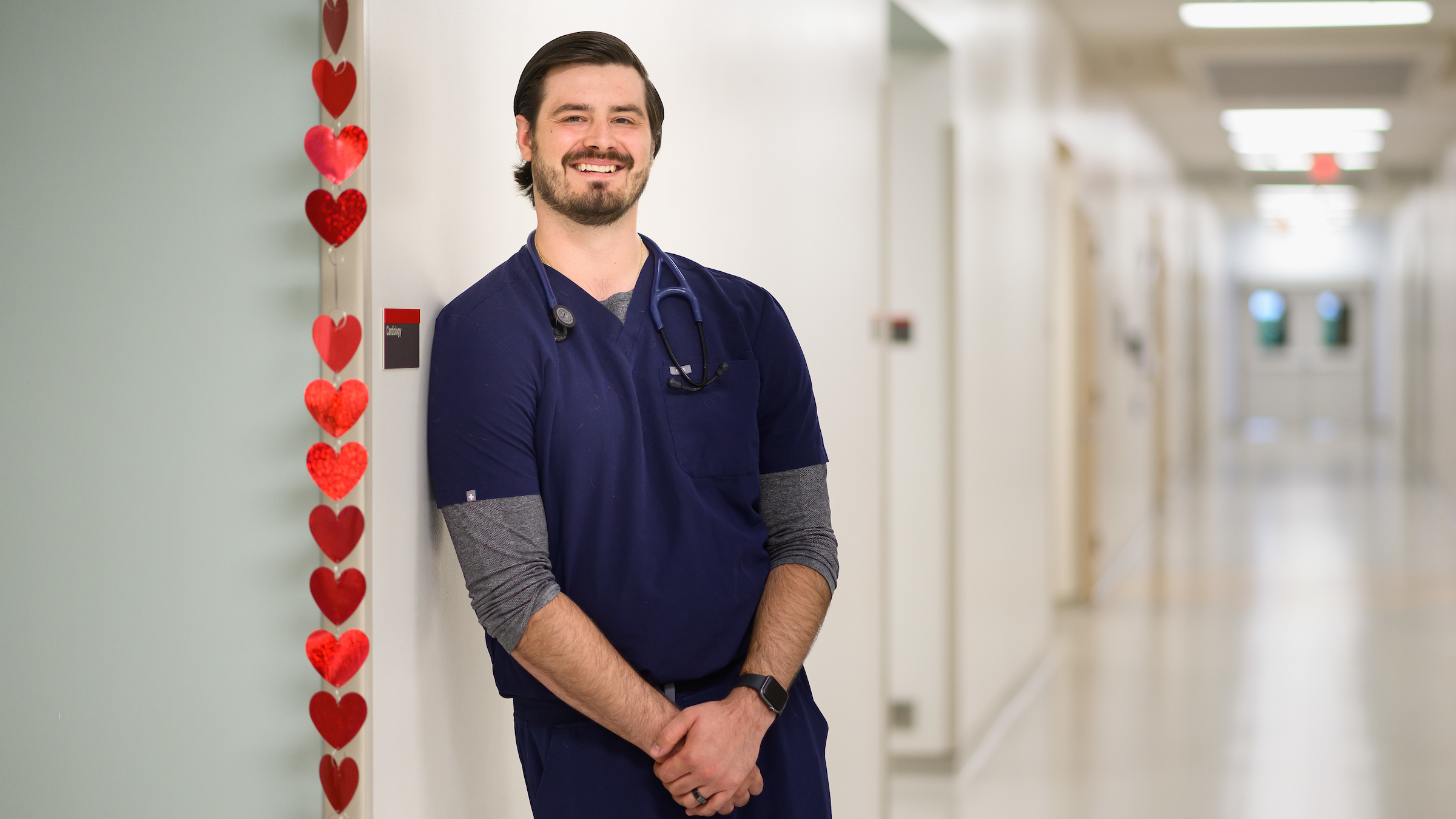Just What the Doctor Ordered

Leila Mureebe is a vascular surgeon at Duke University Hospital. Growing up in New York City, the last thing she ever expected was to spend any time on a sheep farm. But that was before she became the owner of a Berger Picard named Sprocket. If you aren’t familiar with the Berger Picard, the American Kennel Club web site describes the breed in these words: “The Berger Picard is an ancient breed developed by the farmers and sheepherders of the Picardy region of northern France. … This is a rustic, working shepherd’s dog.” It also describes the breed as “good-natured, loyal and observant.”
In other words, Mureebe is the owner of a wonderful companion, but one that was born to work, and that means a dog with a lot of pent-up energy. And that pent-up energy has to go somewhere. Let Leila illuminate the situation in her own words: “When Sprocket was a puppy he was crazy — as are all herding breeds.”
Having settled in North Carolina, she sought the help of a local dog trainer to see if she could get some expert guidance on how to help Sprocket become a little more civilized. She found a great trainer with lots of experience working with herding dogs — on a sheep farm. Or, to be more specific, a sheep farmer who also trains working dogs, a rather logical combination when you think about it.
So that’s how a native New Yorker found herself spending time on a sheep farm in rural North Carolina some four years ago. But that’s just the beginning of the story.
Her time spent on the farm increased her appreciation of the challenges of rural life and the importance of agriculture in North Carolina’s economy. And, being a doctor herself, she appreciated the difficulty of attending to the medical needs of large animals. You can’t simply put them in the car and drive them to the veterinarian’s office, for starters. Moving them is a major logistical undertaking. If they need special examination or need surgery, it often requires oversized equipment and facilities and, needless to say, specialized training in animal anatomy. In addition, she says, “My first job after training was at the university of Missouri and I was lucky enough to work with some of the research veterinarians there and saw some of these issues first hand.”
Up to this point, however, Leila had not crossed paths with the NC State College of Veterinary Medicine (CVM). That requires another chapter in the story.

About two years ago, Sprocket injured a leg. Leila jokingly speculates he took a turn too sharply while chasing a squirrel. But whatever the cause, it was a classic athletic injury. She took him to a private vet who performed a surgical repair. Following the repair, however, she noticed that he continued to limp, which she believes was due to muscle atrophy during his recovery period. Concluding that he needed rehabilitation, she found the rehabilitation specialists she was looking for at the NC State Veterinary Hospital. After two series of six rehab sessions, Sprocket was — and is — as good as new, without a trace of a limp. “You can’t even tell where the injury was,” she says. (She also gives Sprocket credit for never crying once during his ordeal. He’s a trooper.)
However, as you may have noticed by now, Leila Mureebe is nothing if not observant. She took notice of the extensive “Teaching Animal Unit” — we call it the TAU — at the CVM. NC State is the only school of veterinary medicine in the country with its own working farm, where students learn the realities of providing expert medical care to farm animals. That farm is the home of the TAU. Harkening back to her memories of the sheep farm where Sprocket was trained, and her appreciation for the critical importance of agriculture in North Carolina, she was impressed.
She was also impressed by the expertise and professionalism of the medical team assisting Sprocket. “Every interaction was good, better, and better,” she says of her own experience as a client. As someone who practices medicine at “a teaching hospital” at Duke, she was struck by the strong similarities between what she observes at her hospital for human patients and what she observed at NC State. She found the quality of skilled medical care for animals to be very much the parallel of what she sees in human medicine.
And so it completed what she describes as “the improbable arc” of how she came to be donor to the NC State Teaching Animal Unit Endowment. It is not the first donation she has made to the CVM, but it’s the first one to the TAU. We’re glad that Sprocket (who is “no longer crazy”) is as good as new, Leila, and we very much appreciate your support as a physician and as someone who recognizes the value of our work on behalf of North Carolina agriculture.
In fact, you could say that your encouragement (and your contribution) is just what the doctor ordered.
~Steve Volstad/NC State Veterinary Medicine
- Categories:


